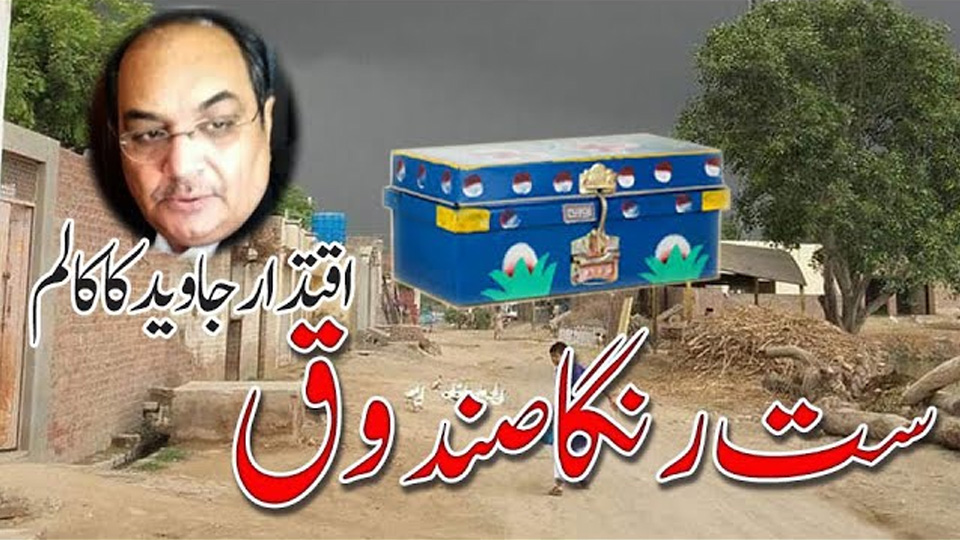Nostalgia is often a comforting return to the past for many people. It is a feeling that brings joy as memories from one’s childhood or significant moments in life resurface, reminding us of simpler, happier times. These memories can evoke a sense of warmth and contentment, offering a brief escape from the complexities of present-day life. However, when nostalgia crosses certain boundaries, it can transform into something more troubling. If an individual becomes too immersed in those memories and begins to long for the past to an unhealthy extent, nostalgia can evolve into a psychological condition. The fine line between cherishing fond memories and becoming trapped in them is often blurred, and when that happens, it can lead to emotional distress and hinder one’s ability to fully engage with the present.
Nostalgia and the Struggle to Move Forward.
For some, recalling the past, especially those moments that were joyful and carefree is a source of happiness. They feel nostalgic about their childhood, family, or the simpler times when life was less complicated. This is often the case with individuals who look back at their past with affection, especially when facing the struggles of adulthood. The weight of responsibilities and concerns over earning a living often push people to long for the carefree days of their youth. However, the past is not always a place of happiness. For some, it holds unpleasant memories they would rather forget, and they struggle to move on from the darker aspects of their history. Nostalgia is a complex emotion, and the memories it evokes can be both pleasant and painful.
The Column by Iqtedar Javed: A Window to Childhood Memories.
In this context, the article by Iqtedar Javed, featured in the AwaazeUrdu column, offers a poignant exploration of nostalgia. While the author’s past may not have been particularly remarkable, it is deeply intertwined with childhood memories that, despite not being entirely happy, continue to hold a special place in his heart. As is common, once childhood is over, individuals often become preoccupied with life’s challenges, leaving behind the carefree days of school, the companionship of friends, and the pampering of parents. The simplicity of childhood desires and small joys often becomes a distant memory, one that individuals long to reconnect with.

The Role of the “Old Chest” and Its Memories.
In this particular column, Iqtedar Javed reflects on a specific childhood memory—the old chest that once stood in his house. This chest, which his grandfather used to store old books, is a central symbol of nostalgia in the article. The author reminisces about the room where the chest was kept, with its colourful stained-glass windows and the ornate wooden beds. As he recalls these memories, he cannot help but feel the sting of loss, as the small houses that once dotted the area were later demolished and replaced by towering buildings. The chest and its contents were not just material objects but vessels of emotional significance, carrying with them the essence of a time that no longer exists.
Also read this blog for a playlist of Iqtar Javed's columns
The Pain of Change: Nostalgia’s Double-Edged Sword.
The sadness of losing these physical markers of childhood is evident in the narrative. The destruction of the little houses and the inevitable transformations in the author’s surroundings represent the passage of time—an irreversible process that continues to alter the landscape of both the external world and the internal world of memory. The author’s melancholy is not just about the loss of buildings or objects but about the larger inevitability of change. This feeling of loss is something everyone can relate to, whether it’s the demolition of old buildings, the disappearance of familiar faces, or the simple passage of time.
As the poet Ghalib once said, “ثبات اِک تغیرکوہےزمانےمیں” (Change is the only constant in life). Change is a force we cannot resist, and learning to adapt to it is often seen as wisdom. While we cannot bring back the past, the act of remembering it is something we do involuntarily. Our memories, no matter how distant, continue to shape us, even if we cannot relive those moments.
Conclusion: The Unstoppable Flow of Time.
Nostalgia, as explored through Iqtedar Javed’s column, serves as a reminder that while we may long for the past, the flow of time is unstoppable. The places, faces, and objects we once cherished may fade away, but the memories remain with us, albeit sometimes tinged with sorrow. The article invites readers to reflect on the past with a sense of both affection and acceptance, acknowledging that while we cannot turn back time, we can hold onto the lessons and joys it has offered. Ultimately, nostalgia reminds us of the preciousness of the present moment and the inevitability of change.
In the end, our memories—whether happy or sad—are part of what makes us who we are, and though we cannot bring the past back, we can continue to learn from it and cherish its legacy.
You can also watch the same video on these social media platforms.
ناسٹیلجیا۔ یعنی یادِ ماضی میں کھوئے رہنا کچھ لوگوں کےلئےیقیناً خوشگوار ہوتاہے، مگر یہ اگرحد سے بڑھ جائے اورآدمی خود کواسی زمانے میں محسوس کرنےلگے تو یہ ایک نفسیاتی مرض بن جاتا ہے۔ اکثرایسابھی ہوتاہے کہ آدمی اپنے ماضی کی ناخوشگوار یادوں سے پیچھا چھڑانا چاہتاہے۔ یعنی ماضی اورحال، خوشگوار اور ناخوشگوار دونوں طرح کے ہوسکتے ہیں۔ آوازِاردوکے زُمرہءکالم میں پیش کی جانےوالی ویڈیو جس کالم نگار کی تحریر پرمبنی ہے، ان کاماضی اگرچہ اتناشاندار نہیں تھا، مگر چوں کہ اس کےساتھ ان کےبچپن کی یادیں وابستہ ہیں، اور بچپن بیت جانےکےبعد انسان فکرِمعاش کی الجھنوں اوراکثر پریشانیوں میں بھی گرفتار ہوجاتاہے، اس لئے وہ بےفکری کادور اسے شدت سے یاد آتاہے، اسکول میں پڑھنا، دوستوں کی صحبتیں، والدین کا لاڈپیار، فرمائشیں، چھوٹی چھوٹی خواہشیں اورخوشیاں، سب ہی یاد آتے ہیں۔
یہ جناب اقتدارجاوید کا کالم ہے، جوآج کی ویڈیومیں پڑھ کرسنایاجارہاہے، ان کے کالمزکی ایک پلے لسٹ بھی آوازِاردوپر پیش کی جارہی ہے۔ جس کاعنوان “ڈنکی رُوٹ” ہے۔ یہ پلےلسٹ انسانی سمگلنگ سے متعلق ہے۔ اس کی تین ویڈیوز پیش کی جاچکی ہیں اورچوتھی عنقریب اپلوڈ کی جائے گی۔ بہرحال آج کی ویڈیوکی بابت بات کرتے ہیں۔ یہ خوشگوار ماضی کی یادوں سے بھرے ایک صندوق سے متعلق ہے جوبچپن میں ان کےگھرمیں رکھاتھا اورجس میں ان کے دادا پرانی کتابیں رکھاکرتے تھے۔ ان میں سے کئی کتابوں کاتذکرہ بھی کالم نگار نےاس کالم میں کیاہے۔ اس صندوق کےساتھ جڑی ہوئی خوشگوار یادوں میں وہ کمرہ، جس میں یہ صندوق رکھاتھا، اس کی کھڑکیوں میں لگے رنگین شیشے، رنگین پایوں والاپراناتخت، چھوٹے چھوٹے گھر، جو بعد میں مسمار کرکے ان کی جگہ بلڈنگز بنادی گئیں۔
ان بچپن کی یادوں کےمسمارکردیے جانےکادکھ پوری تحریرمیں نمایاں ہے۔ مگرظاہر ہےکہ تبدیلی ایساعمل ہےجسے روکنا کسی کےبس میں نہیں۔ غالب نےکہاتھا۔ ثبات اِک تغیر کوہےزمانے میں ، یعنی تغیر ہی ایک ایسی چیزہے جو مستقل ہے۔ ہم اسے روک نہیں سکتے بلکہ اس کےمطابق اپنےآپ کوڈھال لیناہی عقلمندی ہے، مگرگزرا ہوا وقت یاد آنا انسان کی مجبوری ہے، گوکہ وہ اسے واپس نہیں لاسکتا

